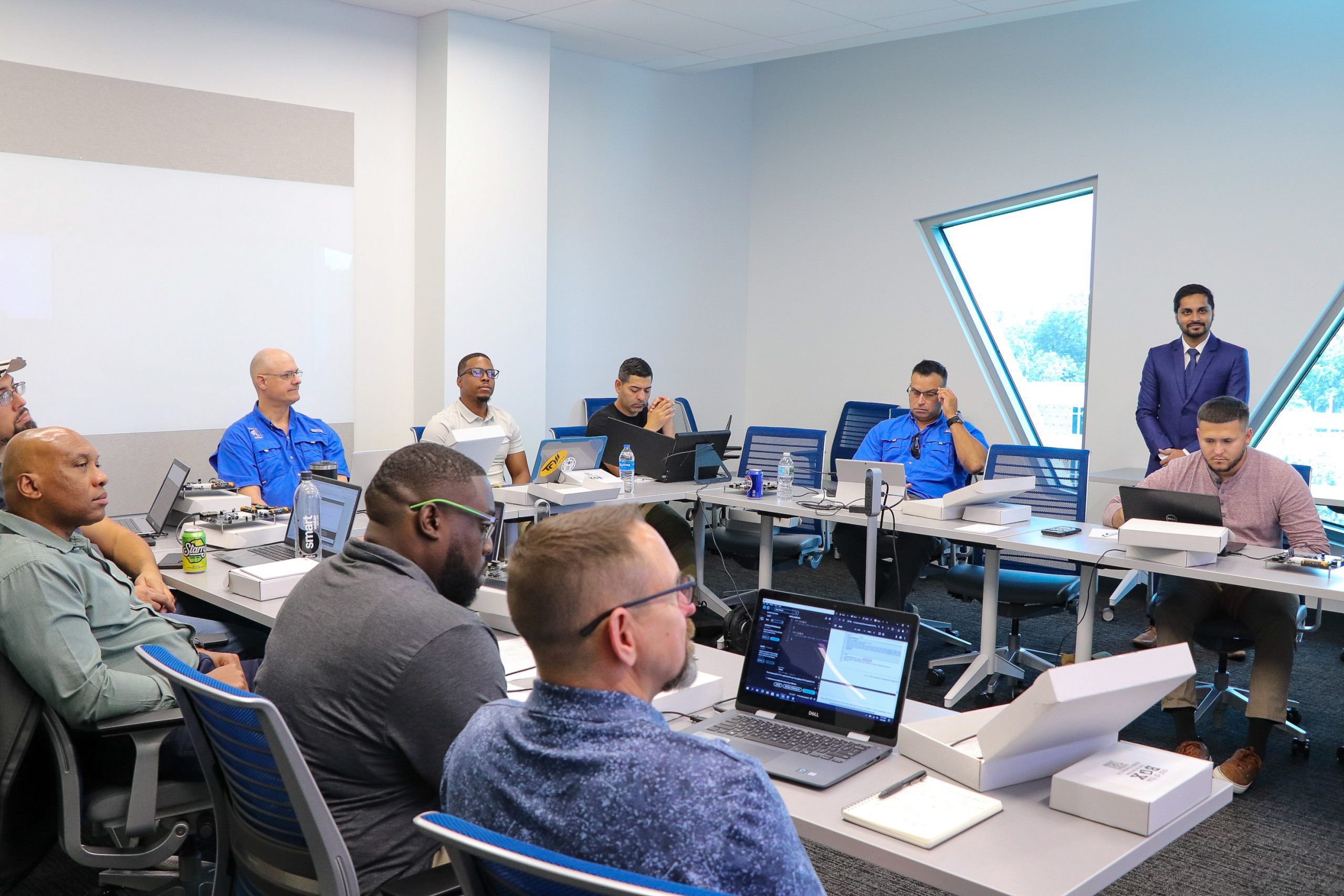A new project led by Warren B. Nelms Institute researchers has received $1 million in funding from the National Science Foundation (NSF) Experiential Learning for Emerging and Novel Technologies (ExLENT) Program.

The project, titled “Pivots: VETS-HASTE: Veterans SkillBridge through Industry based Hardware Security Training and Education,” is led by Principal Investigator Dr. Wanli Xing (College of Education) and Co-Principal Investigator Dr. Sandip Ray (Department of Electrical and Computer Engineering). This three-year project will develop an experiential hardware security training program to actively involve veterans, a significantly underserved population in STEM.
“The VETS-HASTE project offers a supportive bridge for the veteran community, guiding them into the realm of hardware security. With its focused experiential learning program, VETS-HASTE responds to the growing need for security professionals in the semiconductor and microelectronic fields. This effort seeks to enrich the workforce while equipping veterans with essential skills for their continued success.” – Dr. Wanli Xing

project ABSTRACT:
The design of modern semiconductor devices involves a complex and widespread supply chain comprising multiple vendors, intellectual property providers, platform integrators, foundries, testing facilities, and other entities. In this intricate process, there is a clear potential for a malicious actor to introduce security vulnerabilities that undermine the entire system’s integrity. The presence of compromised hardware components in commercial or military cyberinfrastructure can lead to severe and widespread implications for security and safety. Thus, ensuring hardware security is vital for establishing a strong semiconductor design ecosystem. However, there is a significant shortage of adequately trained hardware security workforce despite the critical need in our government and private sectors. This project will develop a sustainable and scalable experiential learning program for underserved participants in STEM to gain new skills and pathways into hardware security careers.
This project will utilize innovative learning science strategies to actively involve a diverse group of veterans, a significant underserved population, in experiential hardware security training. Veterans possess unique qualities and skills, including hands-on experience, resilience, attention to detail, and diverse backgrounds, making them an untapped resource for the advanced technology field, particularly in hardware security. The project will prioritize the recruitment and support of veteran participants, who will undergo an industry-driven course by leveraging university resources and then engage in a series of authentic learning activities facilitated by industry partners, such as in-situ modeling, expert mentoring, and internships. In addition, the project will provide ample opportunities for career exploration and self-discovery to enhance participants’ conceptual knowledge and cultivate their interests in hardware security careers. Finally, independent formative and summative evaluations will be conducted to continuously improve the program design. Through these endeavors, this project will create a diverse and skilled pipeline of workers for the domestic semiconductor industry, thereby contributing to economic and national security goals. This project aligns with the NSF ExLENT Program, funded by the NSF TIP and EDU Directorates, as it seeks to support experiential learning opportunities for individuals from diverse professional and educational backgrounds to increase their interest in, and their access to, career pathways in emerging technology fields.
